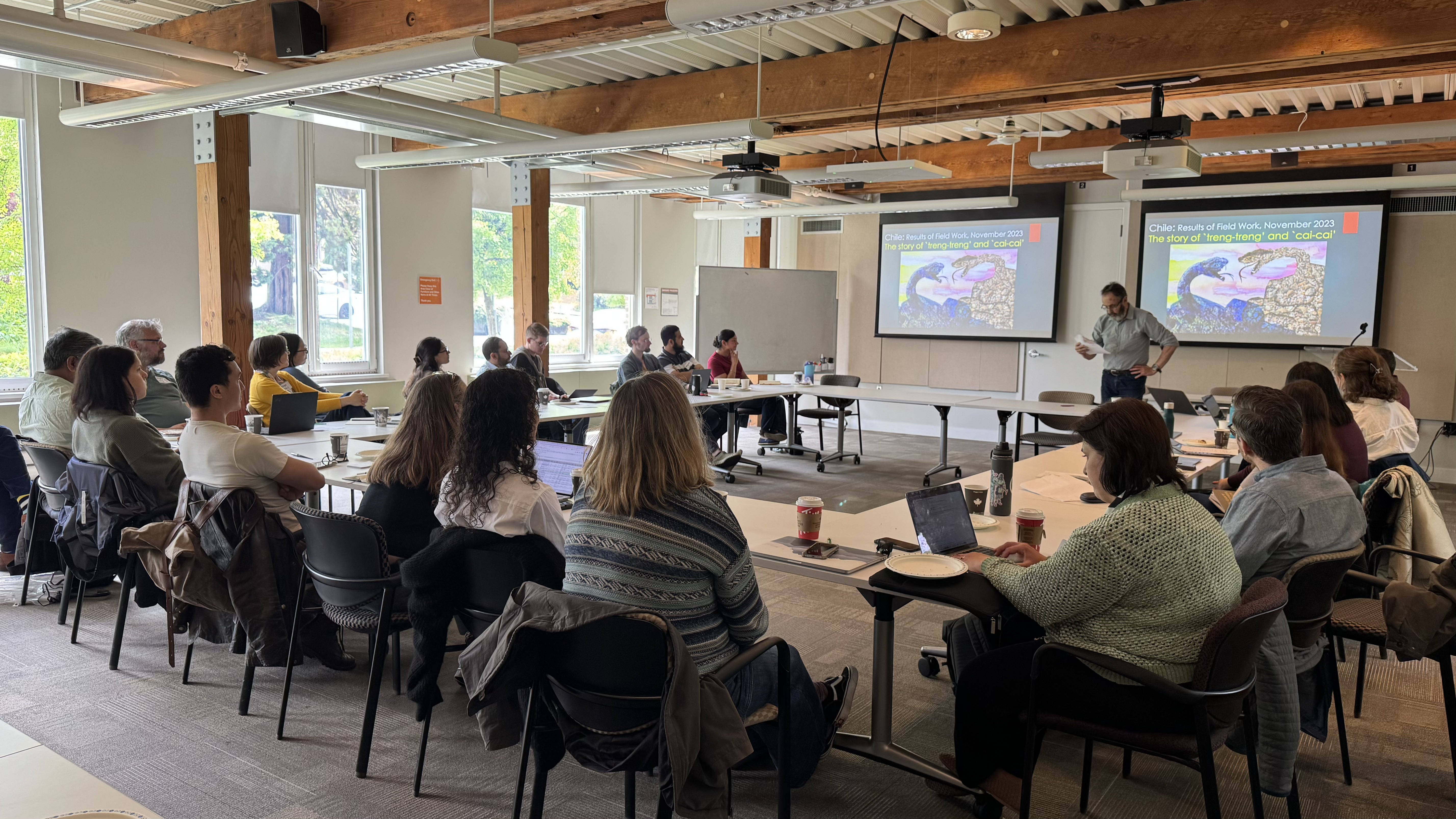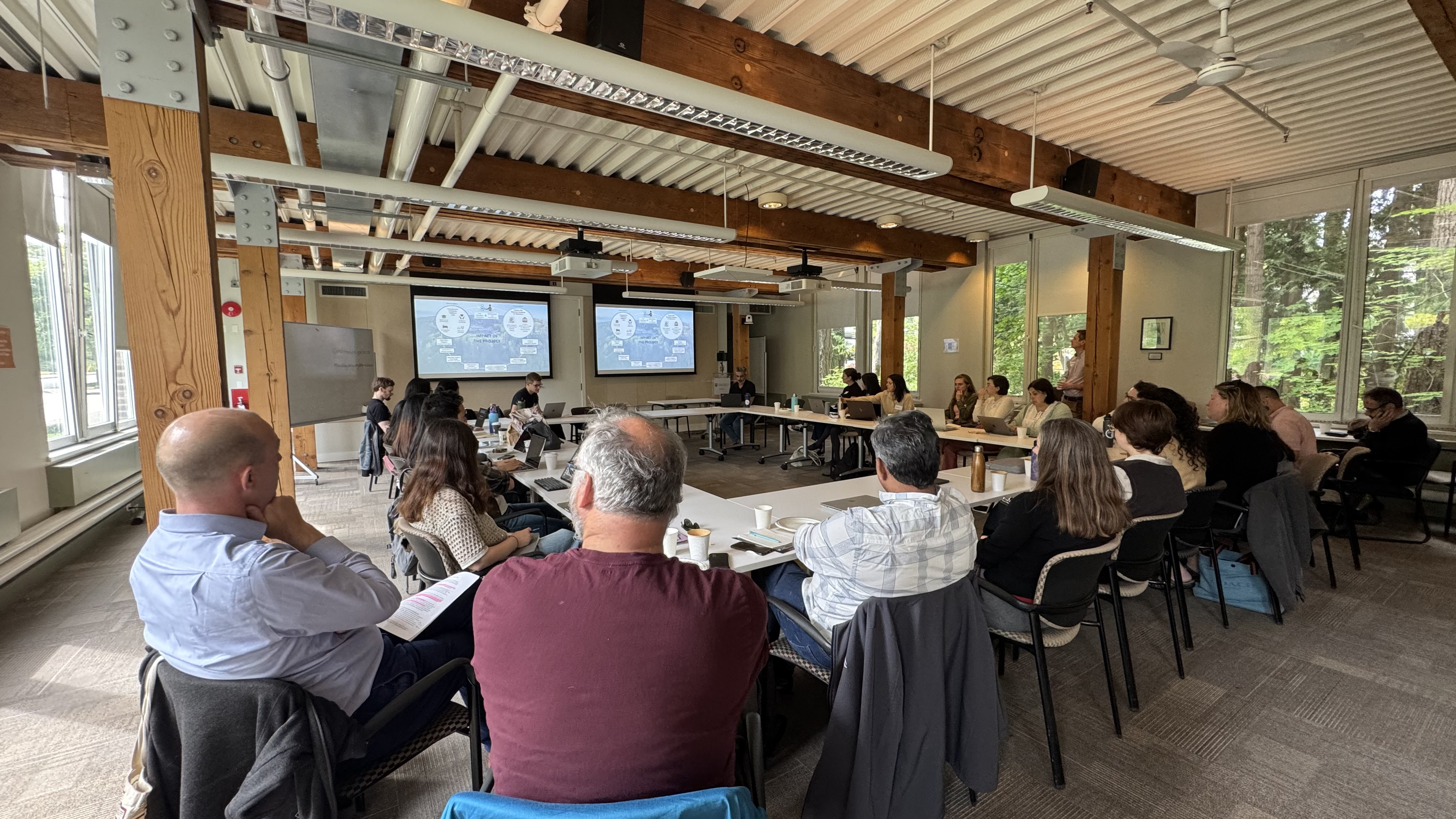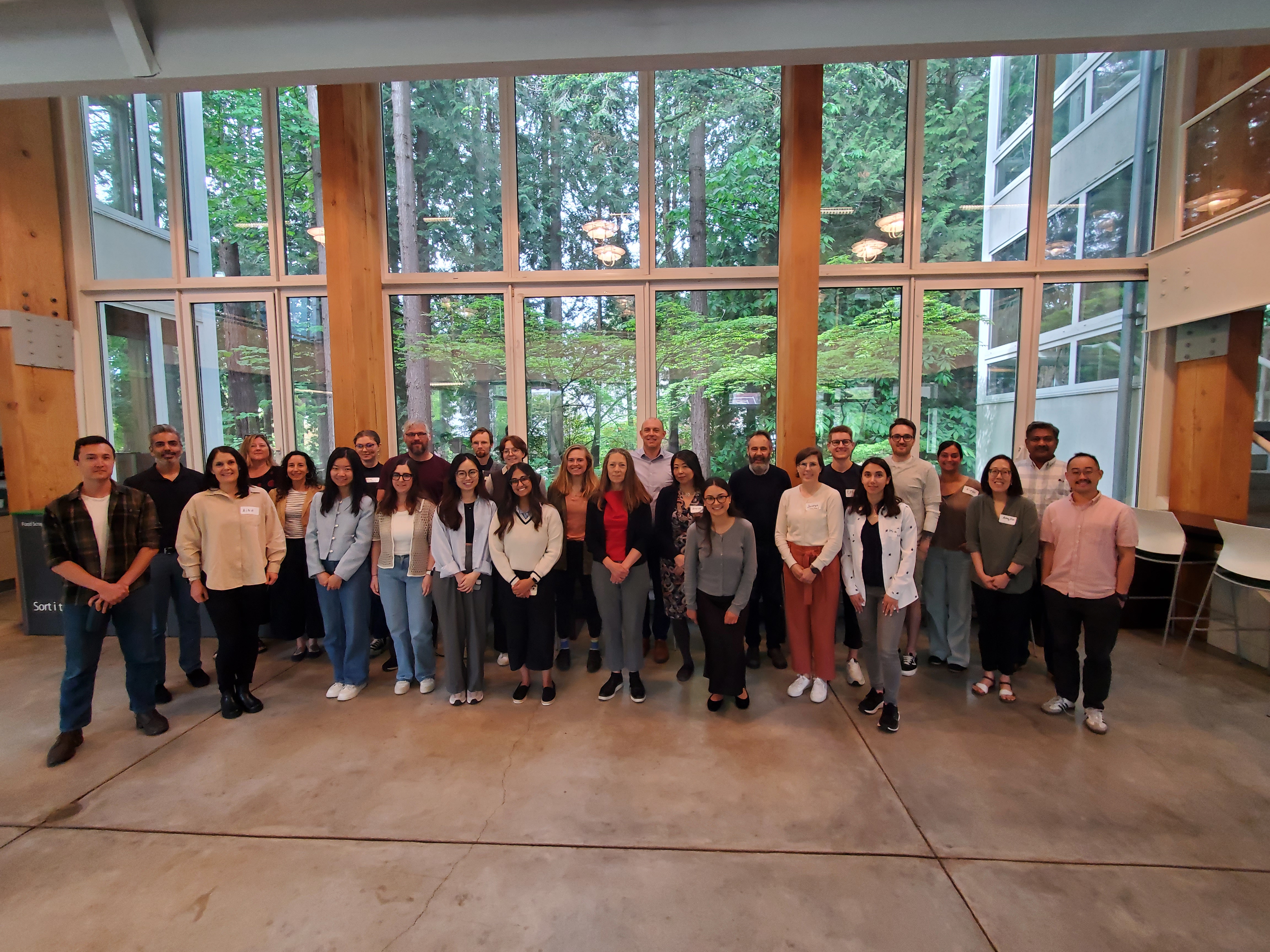Workshop Overview
The two-day DRRN workshop brought together network members, researchers, practitioners, and community partners to reflect on recent projects, share insights, and plan future collaborations in disaster resilience. The event emphasized interdisciplinary research, data sharing, and actionable strategies for disaster risk reduction in British Columbia and beyond.
📅 Day 1 Highlights – May 29, 2025

Morning: EMCR Collaboration Wrap-Up
- Jonathan Eaton and Kiran Kaur reflected on the 2023–2025 collaboration between UBC DRRN and BC’s Ministry of Emergency Management and Climate Readiness (EMCR), including the BC disaster and resilience literature review, the Collaborative Research Agenda, and the Academic Advisory Panel.
Updates on 12 individual EMCR-funded research projects covering seismic risk, flood prediction, wildfire impacts, and community resilience. While a full list of these projects was shared, the workshop featured in-depth presentations from three researchers:
a) Steven Weijs presented his work on Machine Learning for Flood Prediction in Ungauged Basins in B.C., demonstrating how data-driven models can support hazard mapping in regions without traditional monitoring infrastructure.
b) Amy Kim shared insights from her project Changing Transportation Access Over Time Due to Natural Disaster Events, which examines how various hazards disrupt highway infrastructure and affect community connectivity and recovery across B.C.
c) David Edgington highlighted findings from Preparing for a M9 Cascadia Subduction Zone Earthquake in British Columbia, drawing lessons from disaster management case studies in Chile and simulation exercises in Oregon.
These presentations sparked discussion on the tangible ways research can inform policy and improve resilience planning.
Afternoon: BC Atlas of Disaster Workshop
- Led by Jocelyn Stacey and Ethan Raker, this session showcased the BC Atlas of Disaster—an emerging tool to visualize social vulnerability, disaster impacts, and financial assistance across the province.
- Participants explored an early version of the interactive map, discussed data gaps and design challenges, and brainstormed future directions for dissemination and institutional support.
- Goals: Map local emergencies, governance structures, financial assistance, and utility outages, among other data available for communities across BC.
- Beta version of the interactive map launched, integrating social vulnerability, heat exposure, and evacuation data.
Late Afternoon: Data Sharing Discussion
- Participants explored opportunities and challenges in disaster data sharing across the many different methodologies and disciplinary approaches used by DRRN members.
- Emphasis on accessibility, standardization, and ethical use of data.
📅 Day 2 Highlights – May 30, 2025

Morning: Project Updates
- Nicole Errett (University of Washington) presented the work of the University of Washington's Center for Disaster Resilient Communities, which supports research, training, and partnerships to improve disaster outcomes across diverse communities. She shared examples of the Center’s work, including a cross-regional collaboration on extreme heat events, partnerships with Tribal emergency management leaders, and the development of a Disaster Plan Atlas—a centralized, AI-supported repository of hazard and adaptation plans. Dr. Errett emphasized opportunities for cross-border collaboration with Canadian partners, especially in areas like shared climate risks, joint training programs, and aligning disaster policy research. Her talk sparked discussion around expanding DRRN’s international partnerships and adapting some of these U.S.-based models to the B.C. context.
- Raahina Somani, Celine Ip, and Jonathan Eaton presented findings from the Vancouver Emergency Preparedness Survey & Focus Groups, conducted in partnership with the Vancouver Emergency Management Agency (VEMA).
- Paul Gill (UBC Safety and Risk Services) led the presentation on the UBC Resilience Hubs initiative, funded by UBC Sustainability's Campus as a Living Lab program, which aims to strengthen emergency preparedness and response capacity within UBC campus communities. Additional contributions came from project collaborators Michael Hooper, Jocelyn Stacey, Amalie Wilkinson, Steven Weijs, Aina Crozier, and Raahina Somani, who shared insights into the planning framework, engagement strategies, and the integration of research on infrastructure, legal considerations, and social vulnerability. The session underscored how UBC can serve as both a pilot and a model for community-based resilience planning more broadly.
- Amy Kim also presented a separate project on Wildfire Evacuation Planning, a collaboration involving transportation simulation modeling, fire science, and human behavior studies across five small Canadian communities.
Midday: Visioning the Future of DRRN
In the closing session, Jonathan Eaton and Mia Ebadati reflected on what DRRN has accomplished over the past year, including events, partnerships, and projects. The participants were then invited to share input and ideas on future priorities for the network.
Participants discussed:
- Applying for major interdisciplinary grants (e.g., NFRF, Killam Connection)
- Expanding regular DRRN activities like grad student spotlights and lunch-and-learns
- Developing a disaster research data-sharing forum
- Supporting the continued growth of the EMCR Advisory Panel and Atlas of Disaster

